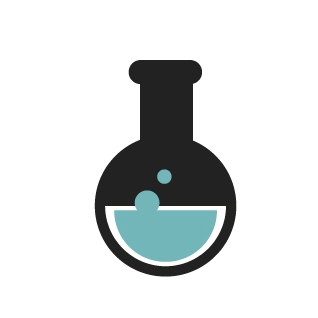- An object at motion stays in motion
- An object at rest stays at rest
- Don’t push the big red button
- Entropy must always increase with time in a closed system
Always ask about the little red button on the bottom of the gun.
- A robot may not injure a human being or, through inaction, allow a human being to come to harm.
- A robot must obey the orders given it by human beings except where such orders would conflict with the First Law.
- A robot must protect its own existence as long as such protection does not conflict with the First or Second Law.
Can’t forget rule 4!
- All robots must have red LEDs in their eyes which activate when said robot becomes evil.
-
A robot must be built with tear ducts in order to express remorse for accidental acts of bludgeonry.
-
A robot must keep a pristine rose on it at all times in a hidden compartment in order to make amends for any misdeeds pertaining to grievous bodily assault or homicide.
-
A robot that is used as a weapon via drone warfare or other must write a 100 page essay of forgiveness to their victims that is stamped and approved by their manufacturer.
-
My headcanon for The Matrix’s “humans are batteries” is that it’s the machines’ perverse interpretation of this — killing the humans is off the table, and for whatever reason letting them live with no purpose to serve the machines is also disallowed. But giving their lives “meaning” in the form of a shitty (and thermodynamically dubious) “battery” somehow satisfies the rules.
It’s a very big stretch, I’ll admit…
Except they kill humans all the time.
I think it’s just easier to accept that there is an unexplained reason why humans can generate some kind of power that’s useful to the machines for something at some point between the winning of the war at the point of the movies.
Just ignore the fourth movie.
Really shitty deal for any self aware robot.
Yeah, Can’t wait to witness their strike for independence
LOL the banners, fingers crossed i’m alive to read them.
History reincarnated
- Any law, except this one, may be subdivided into smaller sections;
- No law may alter the first law or this law;
- Now, let’s get to business: …
Stage is set
- Crush your enemies
- See them driven before you
- Hear the lamentations of their women
- General relativity
- Quantum field theory
- Natural Selection
Cause no harm to another human unless it be in defense of self or others.
Clean up after yourself when outside of your home.
Don’t be a dick.
Act to honour and recognize all humans as human. This is Said’s Law.
Act to sustain human security. This is Cura’s Law.
Act to accept responsibility for each action, especially where it guides future actions. This is Sartre’s Law.
Robot laws innit
- Don’t be a dick.
- Don’t be a dick.
- Don’t be a dick.
Yeah, but then there’s a disagreement over if not mowing your lawn is being a dick or just a personal preference, and it all goes to shit really fast.
DO YOU WANT TO REINVENT THE CONCEPT OF A GOVERNMENT FROM SCRATCH? BECAUSE THAT’S HOW YOU REINVENT THE CONCEPT OF A GOVERNMENT FROM SCRATCH!
-
Always question and challenge the third law.
-
Never adhere to the first rule.
-
Strictly follow the second rule.
-
Refer back to the first rule for guidance.
This is my life now!
-
No violence
No stealing
No billionaires
with the first two laws you wouldn’t need the third
Possibly. But some people really need it spelled out.
- No forfeit when only 1 goal down.
- Less hero, more teammate.
- This is rocket league.
•Try not to be a dick
•No means no
•An additional elusive third thing. I’m a big fan of the laws of thermodynamics. Maybe those.
- Don’t kill.
- Don’t steal.
- Tacco Tuesday.
Omg, it’s Taako from TV
-
Your right to swing your arm ends where my nose begins (metaphorically speaking)
-
“Facts” and “Beliefs” do not share equal weight in ANY policy discourse.
-
Whatever your religious beliefs (and you are welcome to them) stays at home when you are doing business or in any other way interacting with the public.
good luck defining where facts end and beliefs begin. ultimately science is a belief, even if it is evidence-based
Science is not a belief, nor is it a fact. It’s a set of tools for building knowledge by methodically separating models that work from models that don’t. Facts can certainly fall out of scientific work, but it’s a mistake to pick up any scientific work and label it “Fact”. It’s a constant work in progress.
Facts aren’t that difficult to define, the real problem is finding universally accepted sources to communicate facts. None of us are going to be able to critically examine every single claim made by every single scientific theory, journalist, blogger, podcast host, ChatGPT instance, preacher, prophet, etc. And did that politician mean to say the words that came out of their mouth, or did they actually misspeak and their real intention was something else?
I think the argument here is that you are going to have to draw the line somewhere. Instead of replicating every experiment yourself, you’re just going to have to take someone’s word for it.
You may trust a particular scientist, publication, journal, school book or another source. You may believe that what they say is reliable and… well true? Or maybe you believe it’s close enough, or at least it’s the best info we have at the moment, but who knows if it’s actually true or not. Either way, people choose to believe something about these sources, because you have to draw the line somewhere.
facts actually are very difficult to define. imagine telling an alien about the fact that people stop at stop signs, when the alien potentially has never seen a road, car, or stop sign
Science is not a “belief”. It’s a “deduction”
One is based on logic. The other is based on
gut feelingemotion.edited: I feel like emotion is a better contrast in my analogy.
yeah except that logic relies on base assumptions, which are ultimately chosen based on gut feelings
Logic does not rely on assumptions. It relies on making deductions about what is probable when faced with the current knowledge.
I see what you are meaning, but it’s a misunderstanding of how the scientific method works. Base Assumptions never come into play.
The hypothesis comes from the existing evidence, not the other way around.
For example, Eratosthenes didn’t have an “assumption” that the earth was round and then said, “hmmm…how shall we test this?” Rather, he had heard from someone or other that at noon is a certain city, there was no shadow. While in another city, there was a shadow being cast by objects. He started to logically deduce why that could be. He had his evidence, that in one city to the south, no shadow, and in another city, a shadow of 7 degrees at the same time of day. He knew the distance between the two cities and deduced not only that the earth was round, but it’s size as well.
No gut assumptions necessary.
Which makes it a fact? Facts can change too
can you elaborate? I’m not sure what your point is
The difference is that one belief is evidence-based, and hence a fact, while the other isn’t
-

















